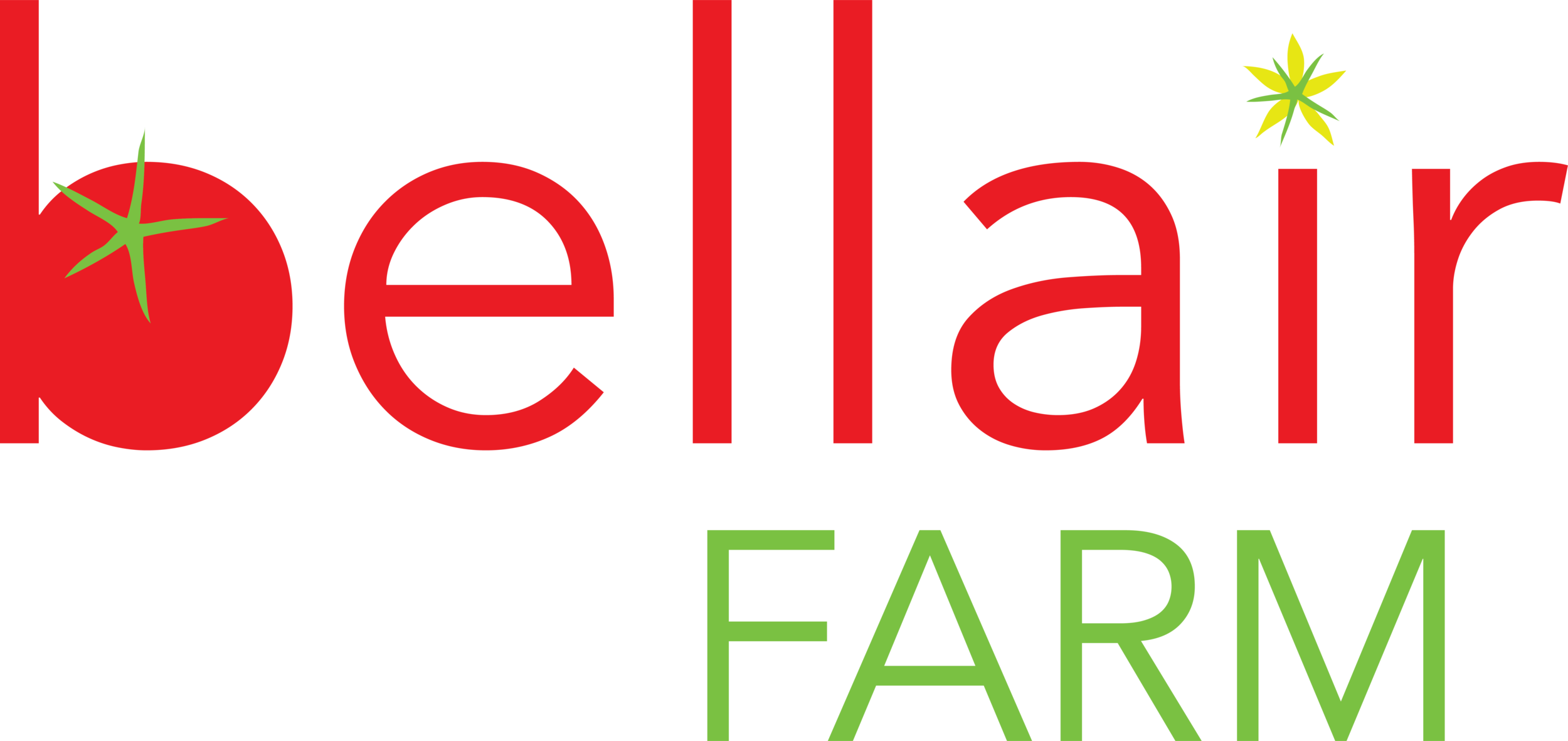Bellair Heads to the Cannery (2021)
Last week, four of the Bellair crew had the opportunity to visit the Prince Edward County Cannery to make our pizza sauce! For those of you who don't know, Bellair offers a variety of jarred goods: pepper jelly, hot sauce, and salsa in addition to pizza sauce, all made by hand with our own produce.
Visiting the cannery is like taking a step into the past and into the future at the same time. The building itself, retrofitted in the '70's as a community cannery (combining two previously existing canneries in the county), is filled with antique and still very much functioning equipment: corn shellers, potato peelers, huge retorts (industrial pressure cookers) with cooling tanks and giant iron baskets lifted with hydraulic chain systems. Alongside these relics are modern stainless steel tables, specialized produce processing equipment, and a staff trained in the most modern food safety regulations and canning techniques.
In the past, canneries like this were a staple in many rural communities. Virginia had over 80 of these canneries at one time. Now, the cannery in Prince Edward stands with just a handful, less than 10 at this point, of canneries across the state. Of the remaining canneries, Prince Edward is one of the only to make the leap into commercial canning for resale in addition to offering canning for home use.
Prince Edward offers up their building in partnership with Virginia Food Works, a non-profit who works out of this space. Virginia Food Works offers discount co-packing services to farms like ours and other food businesses. Co-packing means producing and/or packaging a food product on someone's behalf. Whether just helping folks get started or performing the bulk of their production, VFW is a true service to the local food economy. I (Michelle) was lucky enough to serve as their director in 2019 and still serve on their board.
Normally, we have VFW do a full-co-pack on our products, meaning we drop off produce and pick up jars. This year, labor shortages at the cannery, interest among the crew, and our CSA hiatus last week spurred us to do it the DIY route!
On Thursday, we woke up bright and early for the trip. We loaded up all our ingredients for pizza sauce (400 lbs thawed frozen tomatoes, 66 lbs onions, 10 lbs garlic, 5 lbs herbs, tomato paste, olive oil, salt, sugar, and black pepper) along with about 150 lbs of peppers to process and leave at the cannery for mild pepper jelly co-packing. We drove the 1.25 hours to the cannery and got straight to work:
First, we prepped ingredients: peeled garlic and onions, stripped herbs, and measured pantry items.
Then, one of us diced onions in a food processor, one of us processed the herbs and garlic down to a pesto-like mash, and two of us pulped our tomatoes.
Then, the fun part! We combined all ingredients into the big steam-jacketed kettles that the cannery uses for cooking. We take the "waste" that the pulper spits out -- seed and skin bits -- and mix it back into the pulp for a more rustic texture with nutritive benefits.
While the sauce cooked down, we took lunch and prepped and diced all our peppers. VFW will be making those into pepper jelly this week and we will pick it up next time we are down.
Once the pizza sauce is thick enough, we taste, and then test for pH and do a series of temperature tests to ensure we will be able to create a safely canned product. We batch code each jar so that we can trace it back if we ever need to. For this batch, we poured each jar by hand. In the future, we hope to utilize a filling machine, which, while finicky, can really improve efficiency if dialed in correctly.



